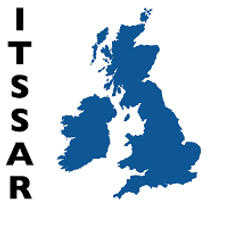Telehandler


Telescopic Handler – Rough Terrain & Industrial, commonly known as a telehandler, offers both vertical and forward reach up to and over 9m. Its versatility doesn’t end there; it can be found on farms, construction sites or even driving on roads. Some telehandlers are fitted with stabiliser legs; this can increase their stability and capacity when handling loads. They can also be fitted with various attachments including forks, bucket, grab, lifting hook, work platform.
Training can be provided on the following categories:
-
J2 (Rough Terrain) – Variable reach up to 9m
-
J3 (Rough Terrain) – Variable reach above 9m
-
J4 (Industrial) – Variable reach up to 9m
Accrediting Body: Independent Training Standards Scheme & Register (ITSSAR)
Maximum Ratio: 3 : 1 : 1 (3 Operators : 1 Instructor : 1 Machine)
Durations:
Novice* – 1 Operator = 3 days, 2 Operators = 4 days, 3 Operators = 5 days Experienced** – 1 or 2 Operators = 2 days, 3 Operators = 3 days
Safety Refresher*** – 1, 2 or 3 Operators = 1 day
Conversion – Please contact me
* For trainees with very little or no previous operating experience of a telehandler lift truck
** Existing operators with some previous experience of using a telehandler lift truck but have not received formal training
*** This course is available for those operators with in-date documentary evidence of formal training
Course Breakdown
The following is a list of elements that make up a novice course. (N.B. The list for experienced operators, safety refreshers and conversion courses may be shorter).
-
Course Introduction, the need & reasons to train and relevant statutory requirements
-
Introduction to the equipment, control familiarisation, and principles of operation
-
Recommended mount & dismount and introduction to the motive and steering controls
-
Identification, use and adjustment of attachments in pre-determined positions (Inc. forks)
-
Basic steering exercises – simple courses
-
Advanced steering exercises – figure of 8, chicane and 90° approaches
-
Battery charging procedures, maintenance & refuelling procedures
-
Operators safety code and relevant handout
-
Daily pre-use inspections
-
Engineering principles, rated capacity and stability
-
Simple hydraulics (theory) and introduction to the hydraulic controls
-
Load types, handling and weight assessment
-
Stacking/de-stacking at low, medium & high levels on racking*
-
Stacking/de-stacking at low, medium & high levels bulk stacks*
-
Stacking/de-stacking at low, medium & high levels with corner post pallets/metal stillage’s*
-
Manoeuvring/transporting/handling awkward loads*
-
Ramps and inclines*
-
Vehicle loading and unloading*
-
Relevant safety film
-
Testing: Pre-use checks, practical skills and theory
* Will be covered where facilities allow/are relevant
All courses are ITSSAR accredited and comply with the ITSSAR standards set in accordance with the HSE Code of Practice L117 (Rider-Operated Lift Trucks).
On-Site Courses and Facilities Required
The course will be delivered on your premises. This will give your employees the advantage of being trained and tested on the truck they will use on a daily basis after training has been completed, safely and efficiently.
Training can be tailored/bespoke to your business requirements, but the following facilities will be required:
-
Access to your forklift truck
-
An area large enough for basic & advanced manoeuvring and testing
-
Pallets and loads appropriate to your business
-
For theory training – an area large enough for the instructor and the trainees to work, with chairs, a table and a power supply (A small office)
-
It is recommended that all forklift truck operators wear safety footwear and a hi-visibility vest. Other personal protective equipment is as per the company’s SSOW/RA
Certification
After completing the course you will receive:
-
A certificate e-mailed to you
-
If you have applied for ITSSAR TOPS* (Trained Operators Passport Scheme), you will be registered onto the TOPS database, have your own TOPS number and receive a photo identification card.
* There is an additional charge of £20 per trainee. This covers the registration onto the TOPS database and card
After Care
After completing the training, feedback (verbally and written) will be given to both the trainee and their manager on the trainee’s performance including any recommendations.
When refresher training is due, (HSE recommends every 3 – 5 years, your company policy may differ), notification will be sent via email.


